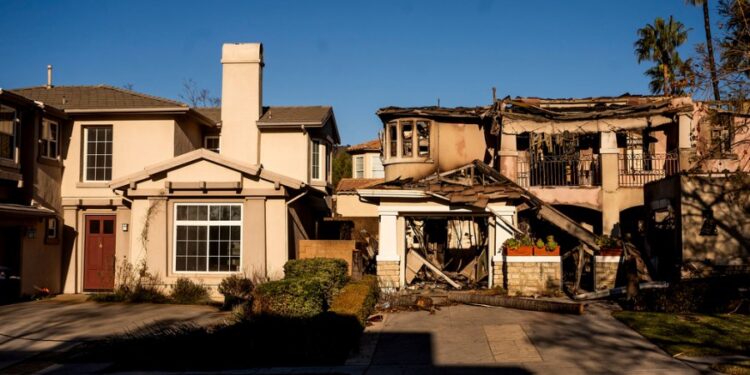LOS ANGELES (KTLA) — Recent wildfires have left a devastating mark on the Los Angeles area, displacing families and exacerbating an already dire housing crisis.
Rents in the region are on the up, with accusations of short-term price gouging by landlords making national headlines. While experts say rents increasing by as much as 20% is unlikely, KTLA 5 consumer reporter David Lazarus noted that the upward trend is undeniable and adds significant stress for displaced residents.
Lazarus spoke with Marco Giacoletti, a housing expert at the University of Southern California, to better understand the crisis.
One potential solution to help with the ongoing housing crisis involves revisiting zoning laws to permit higher-density housing in working-class neighborhoods like Altadena, which was ravaged by the Eaton Fire.
“Rather than putting up single-family residences, we could allow developers to build duplexes and apartments,” Lazarus said.
And while this could increase housing availability, Lazarus says it would undoubtedly “change the character of many neighborhoods,” and would be a tough sell for longtime residents.

“I think it would be highly controversial,” Giacoletti said. “So it’s hard to say whether this is going to happen or not.”
Lazarus pointed out that most major cities globally have adopted higher-density housing to address similar challenges, avoiding long commutes and keeping residents closer to urban centers.
But for residents in Pasadena, Altadena, Malibu and Pacific Palisades, distance from the city center may have been a selling point for laying roots there, not a detriment.
“As with the rest of the world, at some point, L.A. is going to have to perhaps consider these steps, that these neighborhoods, these very homey neighborhoods that we’ve enjoyed for decades now, might not be in step with the times,” he said.
The fires have also renewed calls for a rent freeze in Los Angeles County.
While consumer advocates argue such measures are necessary, Giacoletti warned of potential unintended consequences in the form of landlords taking their properties off the marketplace altogether, further worsening the housing crunch.

For those who lost their homes, rebuilding poses significant hurdles, Lazarus said.
“In Altadena, there’s a number of people who are uninsured. They’re just off the playing field at this point,” Lazarus explained. Even for those with insurance, Laz said, overages and delays could prolong the process for years. “Some estimates say it could take five years or more for many of these residents to rebuild.”
Compounding the difficulty are offers from predatory buyers and lowball settlement offers from insurers. Lazarus says to be very skeptical of any cash offer you might receive.
“If you get such an offer, not saying walk away from it, but get a second opinion first,” Lazarus advised. He emphasized the importance of consulting real estate professionals or other insurers to understand the long-term value of properties.
“The value of the structure, if your house is burned down, is zero,” Lazarus said. “The value of the underlying land can still be profound,” accounting for up to two-thirds of the overall value, according to the Los Angeles County Assessor.
As Los Angeles faces an uncertain future, the path to recovery will require innovative solutions, resilience, and adaptability in the wake of the crisis.







